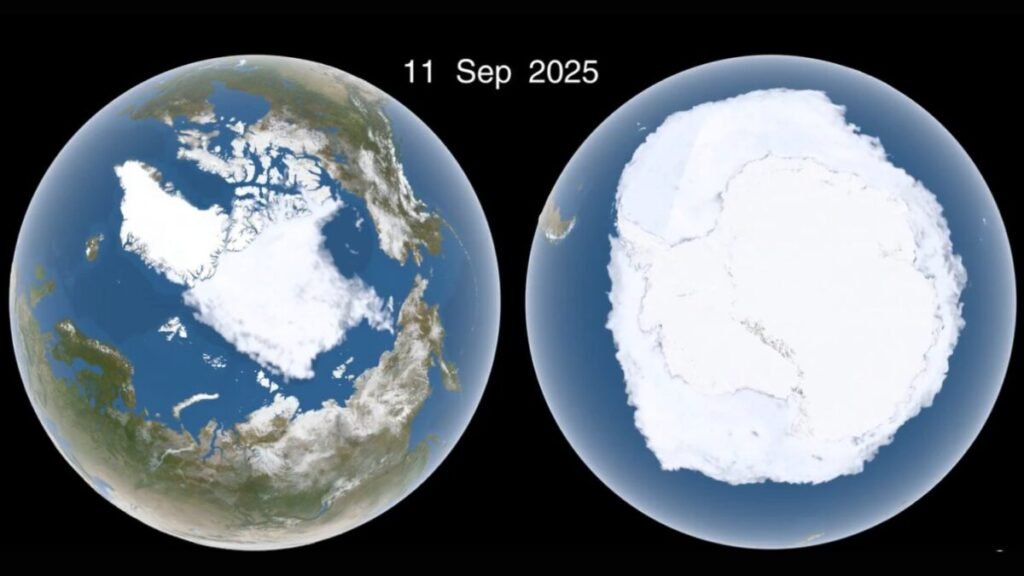The Arctic Ice Melts Unprecedentedly, but the Message is Clear. September 2025 Marks the Tenth Lowest Level in Satellite History.

September 2025 might seem, at first glance, a “less severe” year for the Arctic: there was no new record for sea ice loss. However, the data tells a different story. With 4.60 million km², the Arctic sea ice extent in 2025 reached another historic low. A silent but unequivocal confirmation that the trend of decline continues unabated.
### A relentless retreat

The annual minimum in September placed 2025 alongside 2008 and 2010 in the tenth position on record. The important thing is not the isolated number, but the pattern: since 2007, all September minimums have been well below previous levels. In other words, what used to be exceptional has now become the norm.
### The climate and variability effect
The increase in greenhouse gases raises air and ocean temperatures, weakening sea ice. Added to this factor are winds that carry warm masses, storms that break up thinner ice sheets, and waves that accelerate melting.
Arctic sea ice reached its yearly minimum extent on Sept. 10, making this year tied for the 10th lowest sea ice extent on record, according to NASA and ESA. More: [Twitter link].
### The endangered multi-year ice
Year after year, multi-year ice—ice that survives multiple summers—is decreasing. Its reduction makes it more vulnerable to seasonal melting. Furthermore, the “atlantification” phenomenon, with the entry of warmer waters from the Atlantic, delays ice regeneration and adds pressure to the polar ecosystem.
### Consequences beyond the Arctic

The reduction of ice disrupts the global climate balance, leading to more heat absorbed by the ocean. The impact is cascading: species like polar bears and walruses lose their vital platform, while indigenous communities see their livelihoods threatened. On a global scale, the 2025 data may not go down in history as an absolute record, but it confirms what scientists have been warning about: each September without a record is actually another step towards a future where the Arctic Ocean could be free of seasonal ice. The signal is there, as clear as the melting ice itself.






